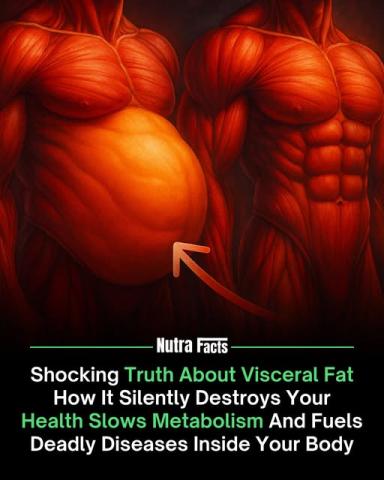Welcome back to the baseline, tennis fans! We talk a lot about topspin, footwork, and the perfect serve. But today, we're diving into a topic that affects your game more than your racket choice: what's going on inside your body.
You've felt it before. That sluggish second set. The feeling that your legs are made of lead, your reaction time is just a split-second too slow, and your energy has completely abandoned you. We often blame it on a bad night's sleep or not eating the right pre-match meal. But what if the real culprit is hiding deep within your abdomen?
We're talking about visceral fat—and it's the hidden danger that's sabotaging your gameplay from the inside out.
The Silent Assassin on the Court (And In Your Body)
Unlike the subcutaneous fat you can pinch under your skin, visceral fat is a deep, internal fat that wraps around your vital organs—your liver, pancreas, and intestines. Think of it not as extra padding, but as a hostile takeover of your internal court.
This isn't just about weight; it's about function. Doctors have found that this fat acts like a rogue organ, releasing harmful chemicals and hormones that cause chaos in your body's systems. This internal malfunction leads to:
- Slower Metabolism: Your body starts burning calories inefficiently, making it easier to gain weight and harder to lose it.
- Poor Energy Regulation: It struggles to manage blood sugar, leading to those infamous energy crashes mid-match.
- Increased Inflammation: This can slow recovery after a tough game and increase the risk of injury.
The most alarming part? This fat can grow without a visible sign. You can have a normal BMI, look slim in your tennis whites, and still be carrying a dangerous amount of visceral fat. This is why the number on the scale alone doesn't tell the whole story of your health—or your athletic potential.
How Visceral Fat Throws Your Game Off
A body battling visceral fat is a body that can't perform at its peak. Here’s how it directly impacts your tennis:
- Stolen Energy: The metabolic interference means less available fuel for those long rallies. You'll fatigue faster.
- Slower Movement: The inflammation and hormonal imbalance can lead to stiffness and slower court coverage.
- Impaired Recovery: Your body will be too busy fighting inflammation to effectively repair muscles after a match, leaving you sore for longer.
- Increased Risk of Injury: A system under constant stress is more prone to strains, sprains, and other injuries.
The Winning Strategy: How to Reduce Visceral Fat
The great news is that visceral fat is highly responsive to lifestyle changes. You already have the tools to defeat this opponent.
- Ace Your Cardio: Regular exercise is your number one weapon. Those hours on the court are fantastic! High-intensity interval training (HIIT)—like doing suicide sprints or practicing serve-and-volley drills—is particularly effective at burning this deep fat.
- Train for Strength: Strength training builds metabolically active muscle. A stronger core, legs, and shoulders don't just improve your power and stability; they help your body burn more calories around the clock.
- Change Your Diet Strategy: Cut down on sugar and refined carbs (think sugary sports drinks, white bread, and pastries). Instead, fuel your body with whole foods, lean proteins, and complex carbohydrates to keep your engine running clean.
- Don't Underestimate Sleep: Quality sleep is non-negotiable for recovery and hormone balance. It's as crucial as your post-match stretch.
The Match Point
You don't need a radical overhaul. Small, consistent changes win this match. Swap one sugary drink for water. Add ten minutes of core work to your routine. Prioritize that extra hour of sleep.
Visceral fat is dangerous, but it's not permanent. With awareness and consistent effort, you can shrink it, protect your organs, and drastically improve your metabolism. Your body will thank you with more energy on the court, better overall health, and a longer life to enjoy the game we all love.
Don't wait for symptoms to appear before taking action. Your greatest victory isn't always on the scoreboard—it's in your health.
Now get out there and win!

